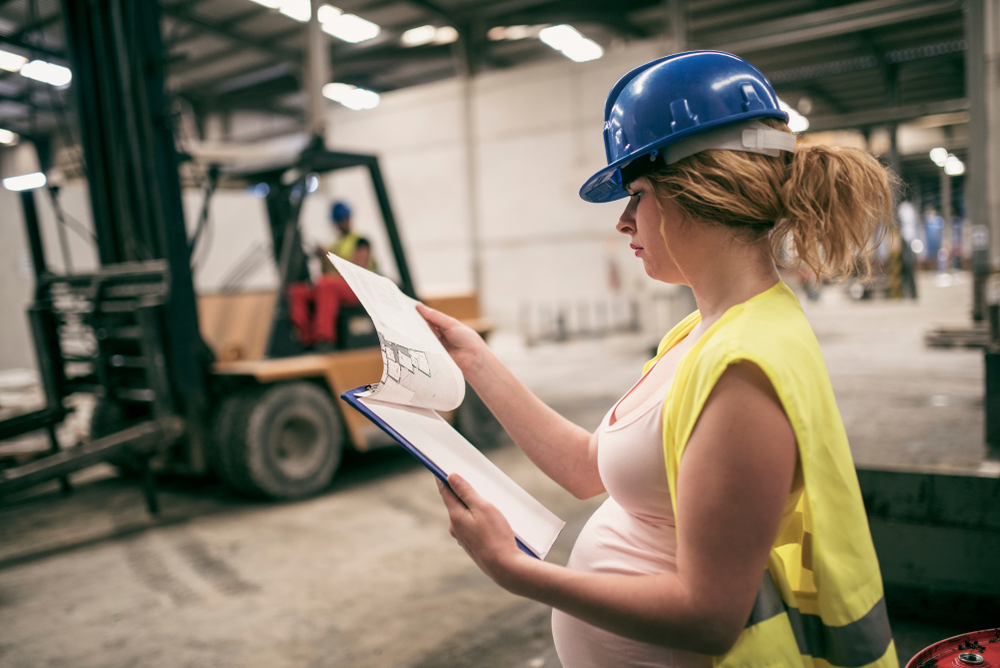New research finds that pregnant workers in Victoria continue to experience discrimination and detriment in the workplace – some lost their jobs, others encountered diminished employment security.
It is very hard to obtain insights into how women are experiencing pregnancy discrimination. Each year, very few legal claims about pregnancy discrimination result in court or tribunal decisions. Most claims are resolved beforehand. When they settle their claims, workers generally sign settlement agreements that include terms preventing them from discussing the claim or even the subject matter that led to the claim being made. There is a broad body of research about the legal protections that apply to pregnant workers but there are few studies of their experiences.
Our research into pregnancy discrimination found that women encounter a range of detriments when they announce they’re pregnant. They experience stress, anxiety, and sometimes even physical risks. Some prioritise preserving their employment over pursuing complaints.
We analysed 42 de-identified case studies about Victorian workers who telephoned the information line at JobWatch Inc., a not-for-profit community legal service. We also conducted four in-depth interviews with women who called JobWatch. Our research has been discussed widely in the media. We explain one dimension of the findings in some more depth in this article. This dimension relates to pregnant women’s experiences of losing their jobs while pregnant or on parental leave.
More than half of the case studies in our research involved women whose employment ended while they were pregnant or on parental leave. Some were casually employed. Their employers did not give them any more rostered shifts after they announced they were pregnant. Others were permanent workers whose positions were made redundant with little or no consultation.
We know that in other countries, such as Israel, employers are prohibited from dismissing pregnant workers unless those employers receive permission to do so from a relevant tribunal. In Australia, there is no similar prohibition. If a pregnant woman’s employment is terminated, the employer’s decision will only be scrutinised by a court or tribunal if the woman decides to pursue legal action. We know that commencing legal action is generally economically and emotionally burdensome. This burden is heightened for pregnant women who must contemplate legal action while also preparing for the birth of a child. Here are some of the key themes that emerged from our research about workers whose employment ended during pregnancy or parental leave.
Maintaining employment is very important for pregnant workers – ‘work arounds’ are common
Pregnant workers need to preserve their employment to access accrued entitlements such as paid and unpaid parental leave. Women in our study tried to navigate around issues or negotiate resolutions with their managers rather than resigning or making legal claims but they faced hostility or resistance when they did so. In one case study, a woman was told by her doctor that she had a high-risk pregnancy and should avoid unnecessary stress. She asked to change her employment contract from full-time to casual. Her employer agreed. Subsequently, with no security in her employment now that she was a casual, this woman was ultimately removed from the roster.
Pregnant workers will resign and move on, rather than litigate
Women in our study resigned and moved onto other jobs rather than enduring further mistreatment or pursuing legal claims.
It is ordinarily very difficult to see these experiences of pregnancy discrimination. We interviewed a woman who described being bullied by her manager in the months after announcing her pregnancy. She said: “I was trapped in a situation where I was being bullied, and had nowhere to go.” While on parental leave, she obtained another job and resigned. By that stage, her relationship with her manager had broken down. She didn’t make a legal claim. But this makes it hard to discern the prevalence of detrimental treatment against pregnant workers; problems remain hidden.
What can be done?
We need to know more about the experiences of pregnant workers, not just in Victoria, but Australia-wide. We don’t know how many claims of discrimination on the ground of pregnancy are made each year under the Fair Work Act 2009. Equality commissions release data about the number of claims made by pregnant workers but they release very little information about the nature of discrimination pregnant women are encountering or how these claims are settled. The last large-scale survey of pregnant workers was conducted by the Australian Human Rights Commissionin 2014. Our study gives a snapshot of workers’ experiences since that time but another large-scale survey is needed. This is particularly important given changes to legal protections in the intervening 8 years. Our research shows how much work is still required to understand the manifestations of mistreatment faced by pregnant workers. Employers, unions and community legal centres need more information so they can meaningfully respond to the needs of pregnant workers. Governments also need these crucial insights to build an evidence-informed law reform agenda that better protects these workers.
- Please note: Photo at top is a stock image






